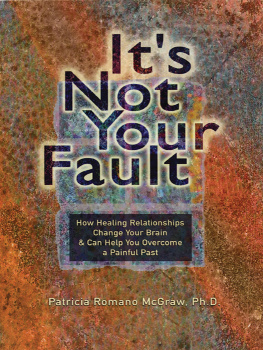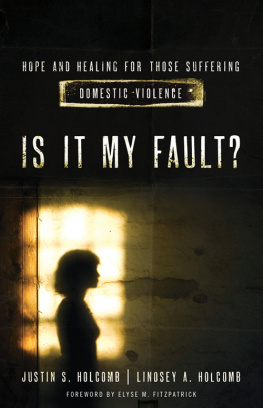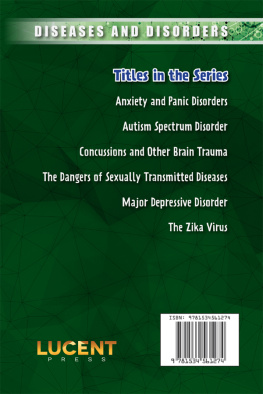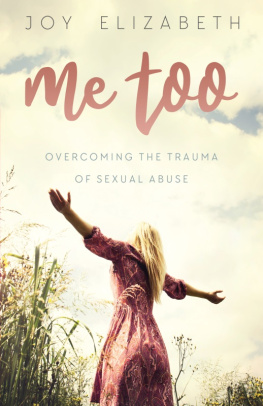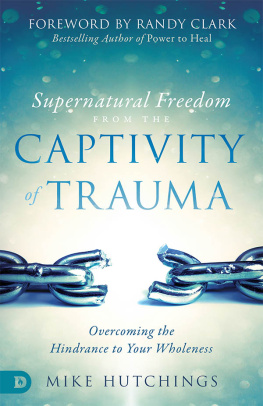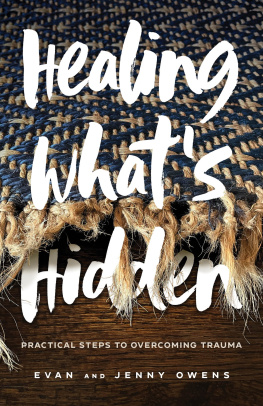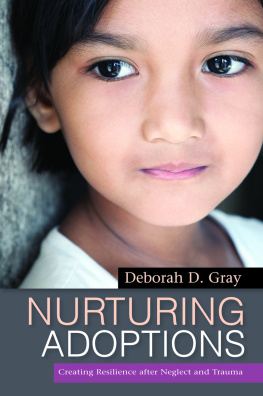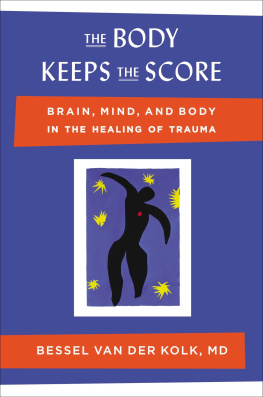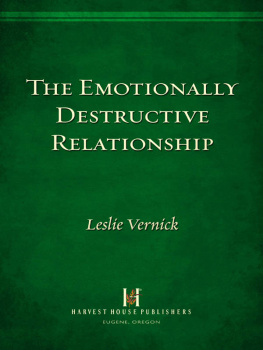Its
Not
Your
Fault
Its
Not
Your
Fault
How Healing Relationships
Change Your Brain
& Can Help You Overcome
a Painful Past
Patricia Romano McGraw

Bah Publishing, 415 Linden Avenue, Wilmette, IL 60091-2886
Copyright 2004 by the National Spiritual Assembly of the Bahs of the United States
All rights reserved. This book, or parts thereof, may not be reproduced in any form without permission.
Printed in the United States of America on acid-free paper
07 06 05 04 1 2 3 4
Library of Congress Cataloging-in-Publication Data
McGraw, Patricia Romano
Its not your fault : how healing relationships change your brain and can help you overcome a painful past / Patricia Romano McGraw.
p. cm.
Includes bibliographical references (p.).
ISBN 1-931847-12-6 (alk. paper)
ISBN 978-1-618510-03-7 (eBook)
1. Mental health. 2. Happiness. 3. Self-actualization (Psychology). 4. Attachment behavior in children. 5. Stress in children. 6. Psychic trauma in children. 7. Interpersonal relations. 8. Spiritual life. I. Title.
RA790.5.M396 2004
158.1dc22
2003063636
Cover by Robert A. Ready
Book design by Suni D. Hannan
To Mom
Introduction
S ELF-HELP BOOKS FILL THE SHELVES of our bookstores. In general, all of them have at least one common message. They tell you that you have the power to change yourself. They tell you that your life is in your hands and yours alone. And they tell you that you can heal yourself. By implication, all of these books are saying, if you are in pain, if you are stuck and cant seem to change, it is no ones fault but your own. You are to blame. You are not thinking positively enough. You are not organizing your life properly. You are not engaging in enough affirmations and positive self-talk. You are not prayerful enough, spiritual enough, and you are not eating the right foods. Certainly, you dont exercise enough. The magazines pick up where the self-help books leave off. Your car is not sleek enough. Your clothes arent the right color. You need to straighten your hair, curl your hair, cut, dye, and crimp your hair. You need a new wardrobe and a new career.
If none of this works, take a walk to a different section of the bookstore. Now you really have a problem. This is the Mental Health section. Listen to Prozac. Take medication. Pick the right therapist. Get psychotherapy. Join the right support group. Go to Narcotics Anonymous, Alcoholics Anonymous, Weight Watchers, or Shapes. If none of that works, go to a good psychiatric hospital and stay a long time. You really need help.
None of this advice is necessarily wrong, nor do I mean to trivialize the very serious issue of mental illnesses that do require psychiatric diagnosis and treatment. However, over the years, I have worked with countless wonderful, sincere, intelligent, and highly motivated people who have followed all of the prescribed pathways and still felt depressed, anxious, inadequate, unloved, and unlovable. In short, they felt terrible, and they couldnt figure out why. They had read all the books, joined all the groups, and had even taken medicine. Finally, they had tried to just pull themselves up by their own bootstraps and tough it out alone. No matter what they tried, it just didnt work. No matter how hard they worked on themselves, they still felt fundamentally flawed, broken, and to blame for that. Many of them confided to me that they believed God or the universe had somehow made them wrong from the beginning. There is something wrong with me, they would say. Many of them told me that they felt hopeless, ready to give up. Some, in fact, had tried to harm themselves, or constantly just wished they were dead. For others, the pain was not as severe. Instead, they complained that they felt numb or fake, only going through the motions of life and not really living. They complained of a deep emptiness inside and of confusion about who they really were. For some, the difficulties they felt inside were played out in relationships. I encountered women and men who tolerated bad, even abusive, relationships; battered women; men who could not sustain long-term relationships; adolescents who were in trouble at school or in conflict with family and friends.
Many of these people had turned to various addictions to try to ease the paindrugs, alcohol, sex, food, and other substances or activitiesall to numb the pain. Others acted out their pain in outbursts of rage that harmed themselves or other people. The cost of acting out rage is very high; it often results in trouble with the law, ruined relationships, and lost opportunities.
When I was a new therapist more than twenty-five years ago, I remember telling folks like these to just get over their symptoms. I would tell them to quit thinking they were no good and to remember they were as good as everyone else. I would tell them to quit hurting themselves, to be kind and nice to themselves. I would tell them to quit getting involved in bad relationships and to quit their addictive and self-destructive behaviors. I would, in fact, tell them what all of todays self-help books tell them. And you know what? Often, it didnt work. In fact, some of my advice and help made them feel worse.
Why? Because, first of all, I didnt understand their pain. And, second, because I didnt understand that my advice was really blaming them for their pain. To pain I was adding shame. Oh, yes, I was making things worse. Once shame comes into the picture, people just clam up and withdraw. They can learn to handle their pain, but when shame is added to it, it becomes almost impossible to bear.
And so I decided to take a new approach. I would be real. I told those who were in pain that I didnt have all the answers. In fact, I said that I didnt have any answers. I told them that I just wanted to understand who they were and what they were going through. I tried to listen deeply, and I tried to imagine how I would feel if I were in their circumstances. And, do you know what happened as I did that, as I gave up the feeling of needing to be the all-knowing doctor who could cure them? They began to get better! They began to say, I feel better after talking to you because you seem to understand, or I feel better talking to you because I can tell you care. And often they said, I have told you things I have never told anyone else. I feel a burden has been lifted from me.
Well, that was fine as far as they were concerned, but meanwhile, I was becoming increasingly distressed about what I was doing from a scientific perspective. Understanding, I thought, What is that? Bedside manner? A good personality? Being nice? Spiritually based principles and intuition were guiding me more than science. Even though people seemed to benefit from what I was doing, I was unsettled. I am a scientist by training, and I felt clueless. So, as I continued to empathize with people who were in pain, I began to study, read, go to conferences, and search for answers in science. Why did my empathy for people seem to help alleviate their pain? Which aspects of the relationship were having an impact, and in which parts of the body, mind, or emotions was this impact being felt? Could one observe this impact and measure it?
My questions took me on a journey that led me in many directions. I will not bother you with all the details of my search, but I will tell you that about ten years into the journey, it began to be clear to me that what helped people was the sense that I was emotionally connected to them and that I cared, really cared about them. But, scientifically speaking, that was of no help to me, either. Egads! Caring! That is not science. And one thing is for sure, science is gospel, right? Every night on the news, the latest scientific discoveries are proudly announced. Never have I heard a newscaster say, And now, startling news from the National Institute of Mental Health: being nice and having understanding has been proven to change peoples brains in ways that reduce emotional pain, depression, isolation, and hopelessness. Niceness decreases violence in all people, of all ages, in all cultures. And thats the news for tonight.

